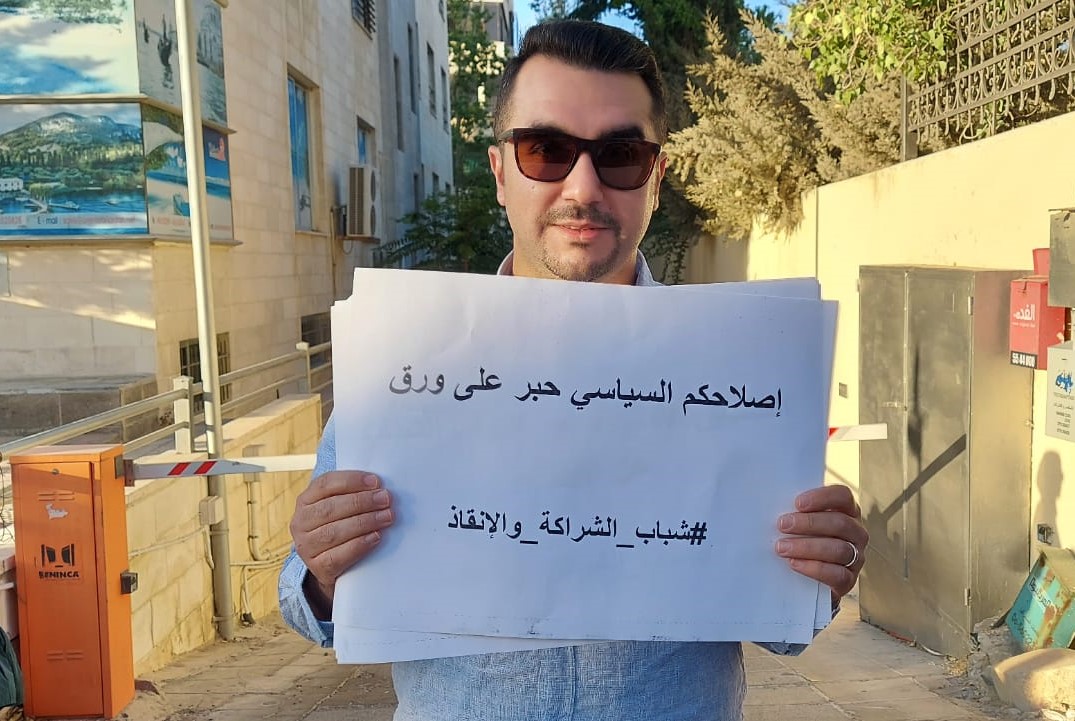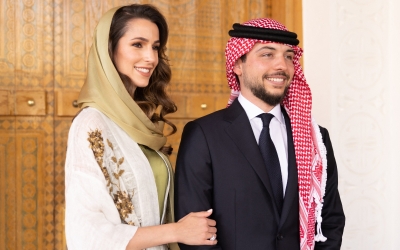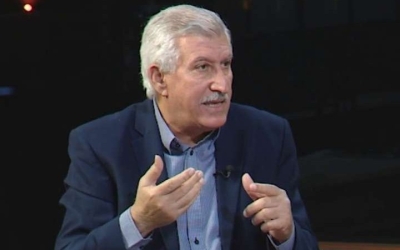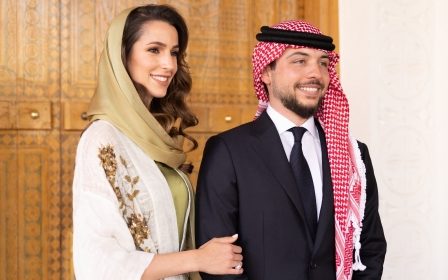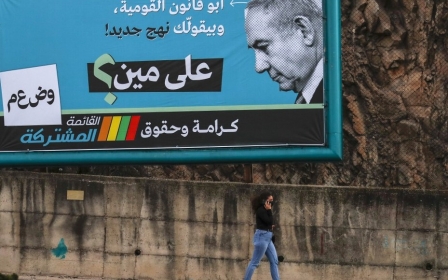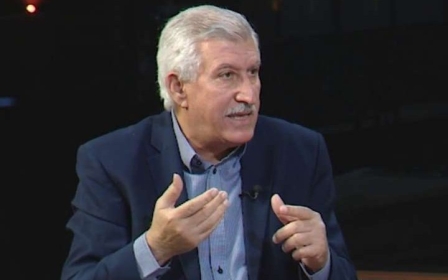Jordan: Young activists complain of democracy being muzzled in the kingdom
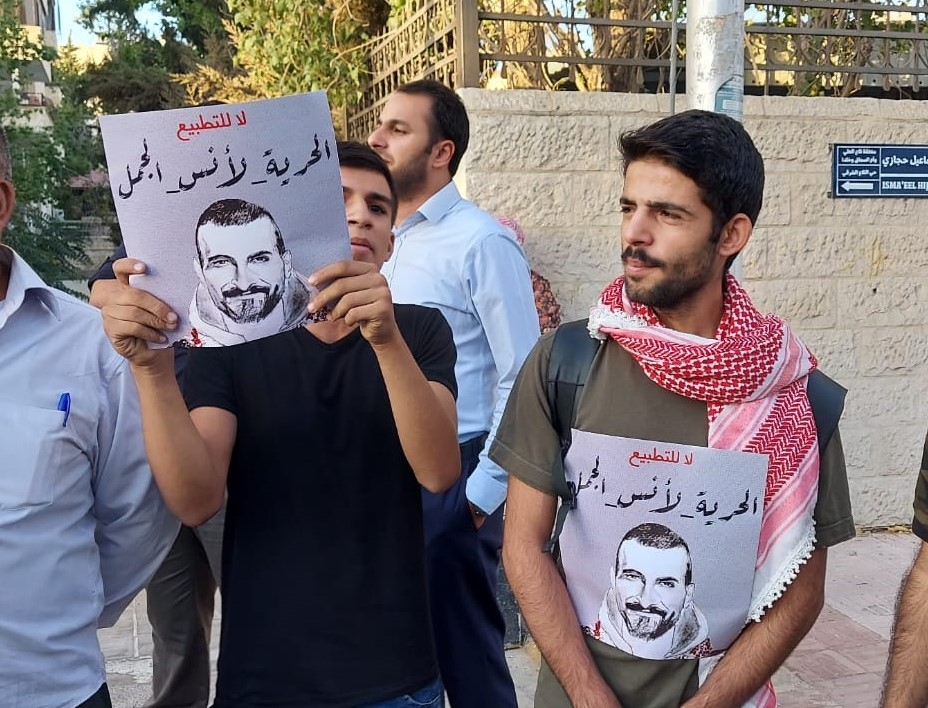
Young Jordanians are becoming increasingly frustrated with what they see as limits being placed on the country's democracy, and the targeting and harassment of political party activists.
On Sunday evening dozens of Jordanians protested in front of the headquarters of the Independent Election Commission, accusing the state of taking actions "to silence mouths, restrict freedoms and exclude young people from participating in political environment".
'We are pressured at airports, our passports are confiscated, we are called into the security agencies multiple times and our party members are harassed'
- Murad Adaileh, Islamic Action Front
Among other issues, the participants were protesting against the arrest more than three months ago of the young political activist Anas al-Jamal, who was jailed on the basis of a social media post and accused of "disturbing the peace of relations".
Jamal has now been on an open-ended hunger strike for two weeks.
The protesters raised slogans such as "Your political reform is just dead letters on a paper…You want to design young people to your political size.”
New MEE newsletter: Jerusalem Dispatch
Sign up to get the latest insights and analysis on Israel-Palestine, alongside Turkey Unpacked and other MEE newsletters
Thabet Assaf, spokesperson for the Islamic Action Front (the largest opposition party in Jordan) told Middle East Eye that 15 of his party's young members had submitted their resignation from the party following pressure from the state.
He relayed the story of a young person “who was forced to resign based on a promise that he will get a permit for a delivery scooter”.
Another protester, a university student, said that the intelligence services called him and his father back in 2021 after he was involved in organising a protest action against the raising of transportation fees at Ahl al-Bayt university.
Murad Adaileh, another protester with the Islamic Action Front, also confirmed that the state's tactics often included travel and job-related pressure.
“We are pressured at airports, our passports are confiscated, we are called into the security agencies multiple times and our party members are harassed when they attempt to get employment," he explained.
Adaileh told MEE that a daughter of a party member was not allowed to work at a public university because of her father’s political affiliation. He added that activists have said over and over that legislation by itself is not enough to fix the problem that exists.
“We can’t have a genuine political party life without freedom. People will not join parties until they can see on the ground that party members are not being harassed.”
Campaign for participation
The complaints of harassment come even as the king and the crown prince push a new public campaign trying to encourage the youth to join political parties.
The effort has picked up ever since political and party laws were amended in December, but at the same time the constitution was changed, giving King Abdullah more powers and weakening any future government.
In an interview on 24 July with Al-Rai daily, Abdullah said that “the doors are open for youth to take a leading role in the modernisation effort. But they must be careful not to follow populists’ campaigns. They should look for realistic programmes that can be worked on."
"The young generation knows well what they want," he said.
Both the king and the crown prince also said on the same day to youth activists “it is necessary that national political parties create political, social and economic programmes in which the youth have a strong say”.
Rula Al-Hroub, the secretary general of the Labor Party, told MEE that she had not noticed any direct interference with members of her political party.
“We have held dialogue sessions throughout the country, and we didn’t even need security approval. No one interfered with us," she said.
Hroub said that she believed the king was making a serious effort at expanding political participation, but suggested the more "ideological parties" were facing pressure.
The Labor Party leader called for wider freedoms for society, noting that in her travels around the country she has noticed that people are still afraid of joining parties.
"The government must do more to establish trust and this needs to begin by encouraging freedom of expression and the ability for political and party activities," she said.
Is it enough?
Under the new electoral laws, the result of work by the Royal Commission for political modernisation, “the percentage of youth between 18-25 must be 20 percent of all party members".
The director general of the Ministry of Political Development, Ali Khawaldeh, said that the new parties must encourage youth participation and provide legal protection for them to be active party members.
The 20 percent minimum requirement is aimed at just that, he told MEE.
Khawaldeh added that article 20 of the new law was aimed at removing all concerns among youth who want to join parties because it specifically opposes discrimination and restrictions against party activity in universities.
It puts education and party activities on the same par and thus legitimised party activity within university campuses.
So far, however, many have been disappointed.
Fakher Daas, a member of the left-wing Popular Unity Party - which has also seen its members harassed by the state - told MEE the bylaws issued by the Higher Council of Education on 23 April were worse than what was expected.
“The bylaws make the student dean into a district governor with absolute powers that can include interfering or stopping any political activity regarding time, place, the speakers, and the activity itself," he explained
He said the new rules failed to state that universities were obliged to allow elected student councils in the universities and that it gave indirect power to the university administration not to allow elected student councils.
‘What is needed is not laws that allow party activities on the campus, what is needed is genuine political will for reform and a review of all disciplinary laws. Student councils must be allowed to hold elections and the repressive disciplinary regulations that are used against political activities must be rescinded."
Political control
A survey carried out by the Strategic Studies centre at Jordan University last May showed that 87 percent of Jordanians don’t know anything about the new party law. Only 13 percent said that they heard about it or know it.
Among those surveyed 22 percent said that they don’t think there is anything new in the law while 20 percent say they believe that the new law encourages the participation of youth and women in political and party activities.
Opposition parties accuse the Jordanian authorities of “re-engineering political life” in order to neutralise the actual power of the parties in parliament.
Murad Adaileh said that in Jordan “today we see an attempt to engineer the work of parties. Some are being pushed to merge, new parties are suddenly appearing, some parties are given official help while others are facing obstacles”.
Adaileh said that a request to hold meetings on campuses had been submitted for months without any answer, while other parties were being allowed to work by all official institutions.
Khawaldeh denied that the “executive branch has any role in establishing new parties”.
According to the new law, he said, only the independent Elections Commission has the right to register new parties.
Middle East Eye delivers independent and unrivalled coverage and analysis of the Middle East, North Africa and beyond. To learn more about republishing this content and the associated fees, please fill out this form. More about MEE can be found here.


